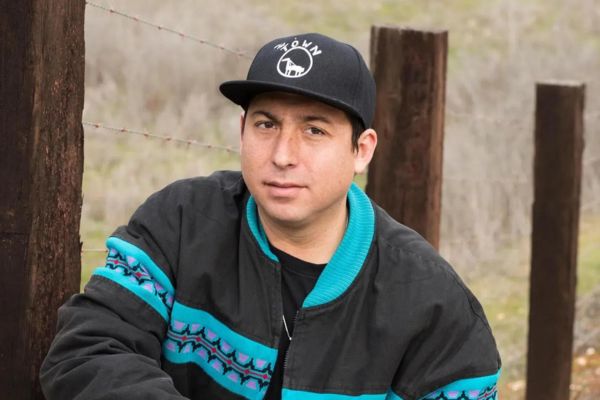
- Details
- By Native News Online Staff
One Book, One Chicago is the public library’s 22-year-old initiative to encourage Chicagoans to read the same book at the same time. Orange, an enrolled citizen of the Cheyenne and Arapaho Tribes of Oklahoma, is the first Native American author to have his work selected in the program. He grew up in Oakland, California, the setting of There, There.
His book, published in 2018, follows the experience of twelve Native characters all traveling to the Big Oakland Powwow. Among them, according to Orange’s website, is “Jacquie Red Feather, newly sober and trying to make it back to the family she left behind; Dene Oxendene, pulling his life together after his uncle’s death and working at the powwow to honor his memory; Fourteen-year-old Orvil, coming to perform traditional dance for the very first time. They converge and collide on one fateful day at the Big Oakland Powwow, and together, this chorus of voices tells of the plight of the urban Native American—grappling with a complex and painful history, with an inheritance of beauty and spirituality, with communion and sacrifice and heroism.”
“Chicago and Oakland share some similarities, and it’s a hub for urban Native life,” Orange told Chicago Sun-Times reporter Adora Namigadde in anticipation of Chicagoans reading his work. “They’ll see themselves or an aspect of Chicago that they didn’t know about reflected. There’ll be some things that they’ll recognize about open experience. Relocation is not something that a lot of people know about. The U.S. government really made an effort to get people off of reservations and to cities in order for us to assimilate and essentially disappear and lose our citizenship as tribal members. But we ended up starting Indian centers like the one in Chicago. All these different Native organizations started up and created this community of intertribal people. I would hope that Chicagoans would be happy to learn this rich aspect of their history among the many rich aspects of Chicago history.”
Orange’s novel was named a Pulitzer Prize Finalist, a Pen/Hemingway Award Winner, a Center for Fiction First Novel Prize Winner, a National Book Critics Circle Award Winner, and a New York Times Best Book of the Year.
Orange described his next novel, Wandering Stars, as a sequel to There, There. It is set to be published by Penguin Random House in March 2024 and traces the legacies of the Sand Creek Massacre of 1864 and the Carlisle Industrial School for Indians.
More Stories Like This
Chickasaw Holiday Art Market Returns to Sulphur on Dec. 6Center for Native Futures Hosts Third Mound Summit on Contemporary Native Arts
Filmmakers Defend ‘You’re No Indian’ After Demand to Halt Screenings
A Native American Heritage Month Playlist You Can Listen to All Year Long
11 Native Actors You Should Know
Help us defend tribal sovereignty.
At Native News Online, our mission is rooted in telling the stories that strengthen sovereignty and uplift Indigenous voices — not just at year’s end, but every single day.
Because of your generosity last year, we were able to keep our reporters on the ground in tribal communities, at national gatherings and in the halls of Congress — covering the issues that matter most to Indian Country: sovereignty, culture, education, health and economic opportunity.
That support sustained us through a tough year in 2025. Now, as we look to the year ahead, we need your help right now to ensure warrior journalism remains strong — reporting that defends tribal sovereignty, amplifies Native truth, and holds power accountable.
 The stakes couldn't be higher. Your support keeps Native voices heard, Native stories told and Native sovereignty defended.
The stakes couldn't be higher. Your support keeps Native voices heard, Native stories told and Native sovereignty defended.
Stand with Warrior Journalism today.
Levi Rickert (Potawatomi), Editor & Publisher


